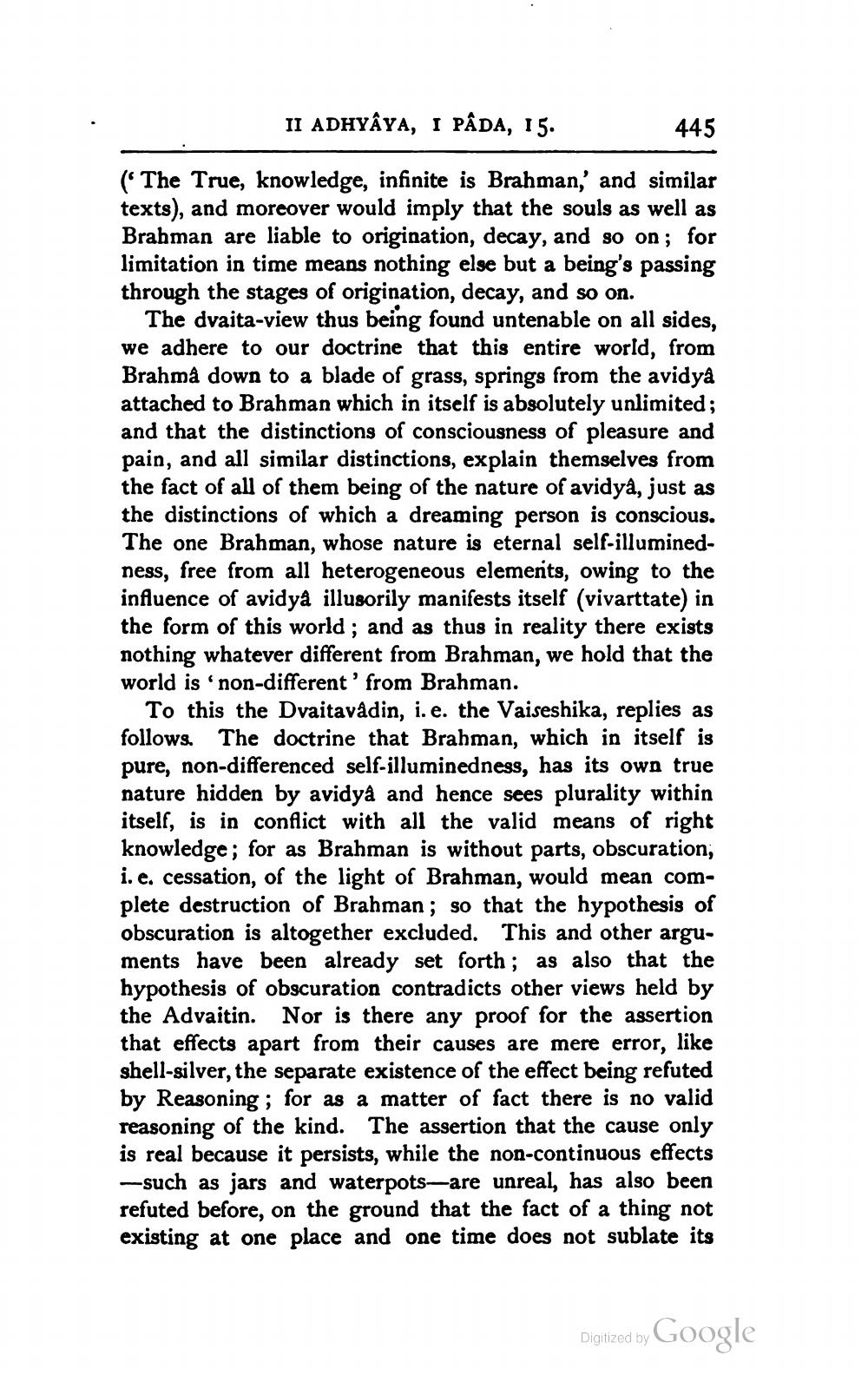________________
II ADHYAYA, I PÂDA, 15.
445
('The True, knowledge, infinite is Brahman,' and similar texts), and moreover would imply that the souls as well as Brahman are liable to origination, decay, and so on; for limitation in time means nothing else but a being's passing through the stages of origination, decay, and so on.
The dvaita-view thus being found untenable on all sides, we adhere to our doctrine that this entire world, from Brahmâ down to a blade of grass, springs from the avidya attached to Brahman which in itself is absolutely unlimited; and that the distinctions of consciousness of pleasure and pain, and all similar distinctions, explain themselves from the fact of all of them being of the nature of avidyâ, just as the distinctions of which a dreaming person is conscious. The one Brahman, whose nature is eternal self-illuminedness, free from all heterogeneous elements, owing to the influence of avidyâ illusorily manifests itself (vivarttate) in the form of this world; and as thus in reality there exists nothing whatever different from Brahman, we hold that the world is non-different' from Brahman.
To this the Dvaitavâdin, i. e. the Vaiseshika, replies as follows. The doctrine that Brahman, which in itself is pure, non-differenced self-illuminedness, has its own true nature hidden by avidyâ and hence sees plurality within itself, is in conflict with all the valid means of right knowledge; for as Brahman is without parts, obscuration, i. e. cessation, of the light of Brahman, would mean complete destruction of Brahman; so that the hypothesis of obscuration is altogether excluded. This and other arguments have been already set forth; as also that the hypothesis of obscuration contradicts other views held by the Advaitin. Nor is there any proof for the assertion that effects apart from their causes are mere error, like shell-silver, the separate existence of the effect being refuted by Reasoning; for as a matter of fact there is no valid reasoning of the kind. The assertion that the cause only is real because it persists, while the non-continuous effects -such as jars and waterpots-are unreal, has also been refuted before, on the ground that the fact of a thing not existing at one place and one time does not sublate its
Digitized by Google




